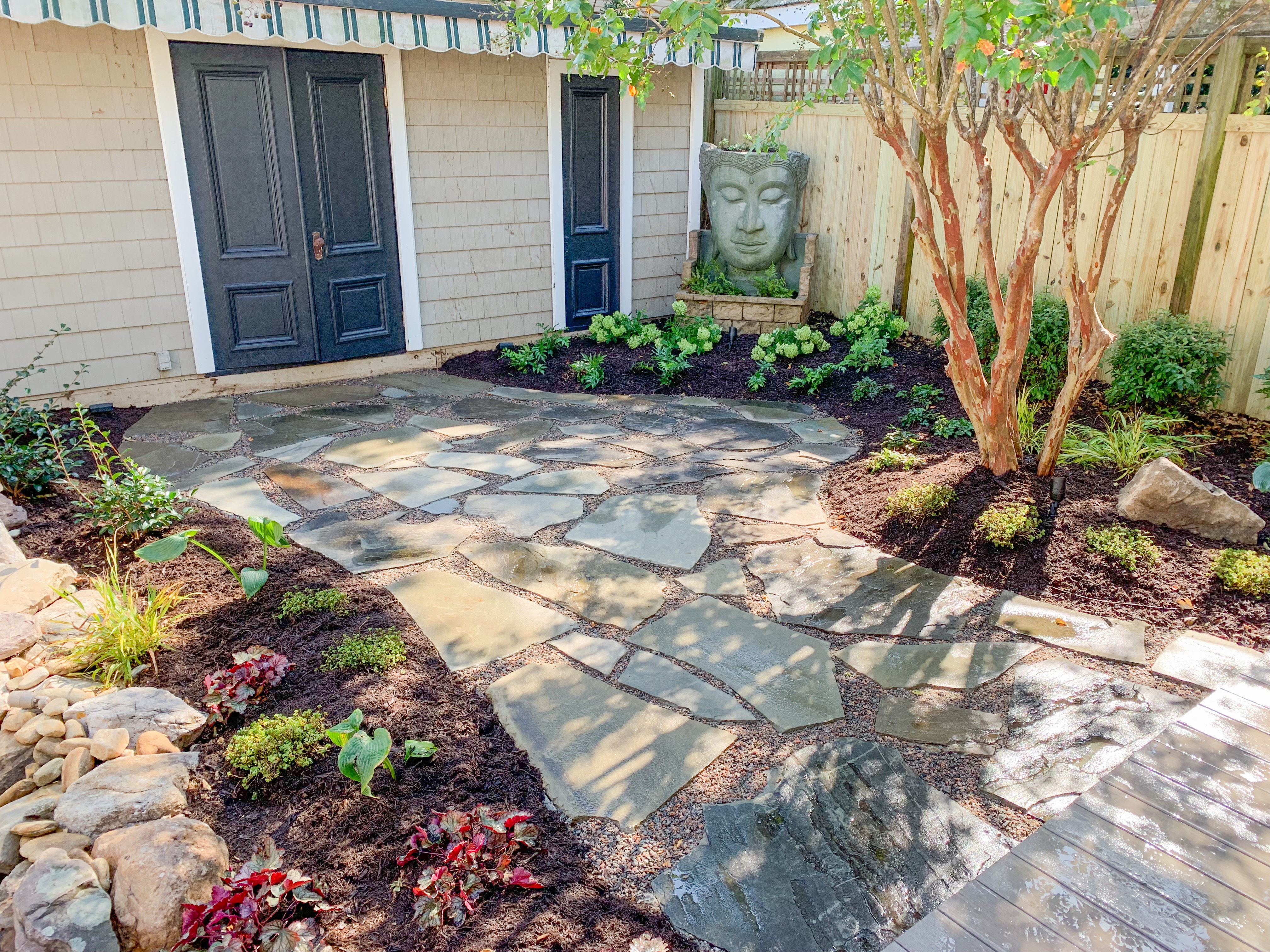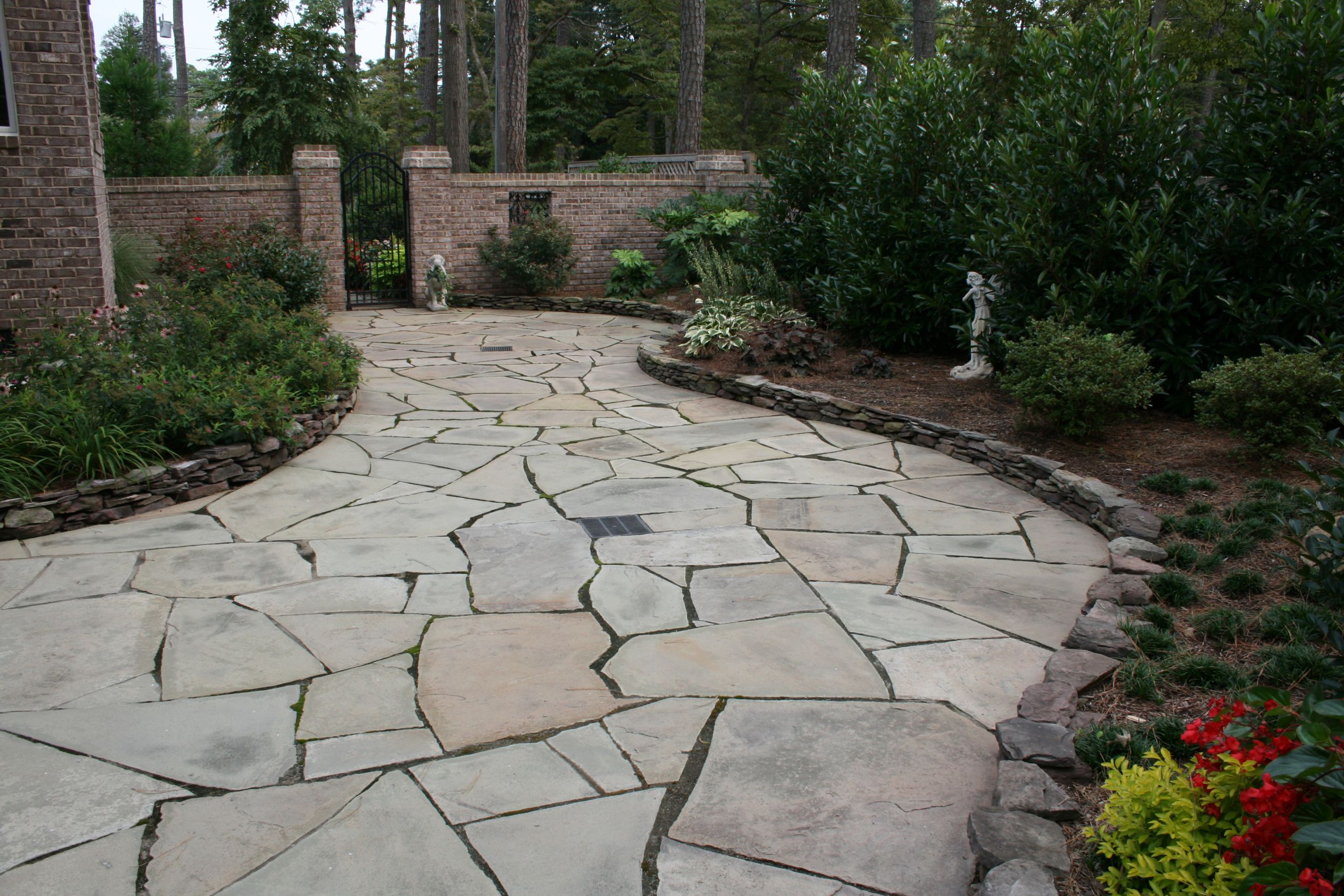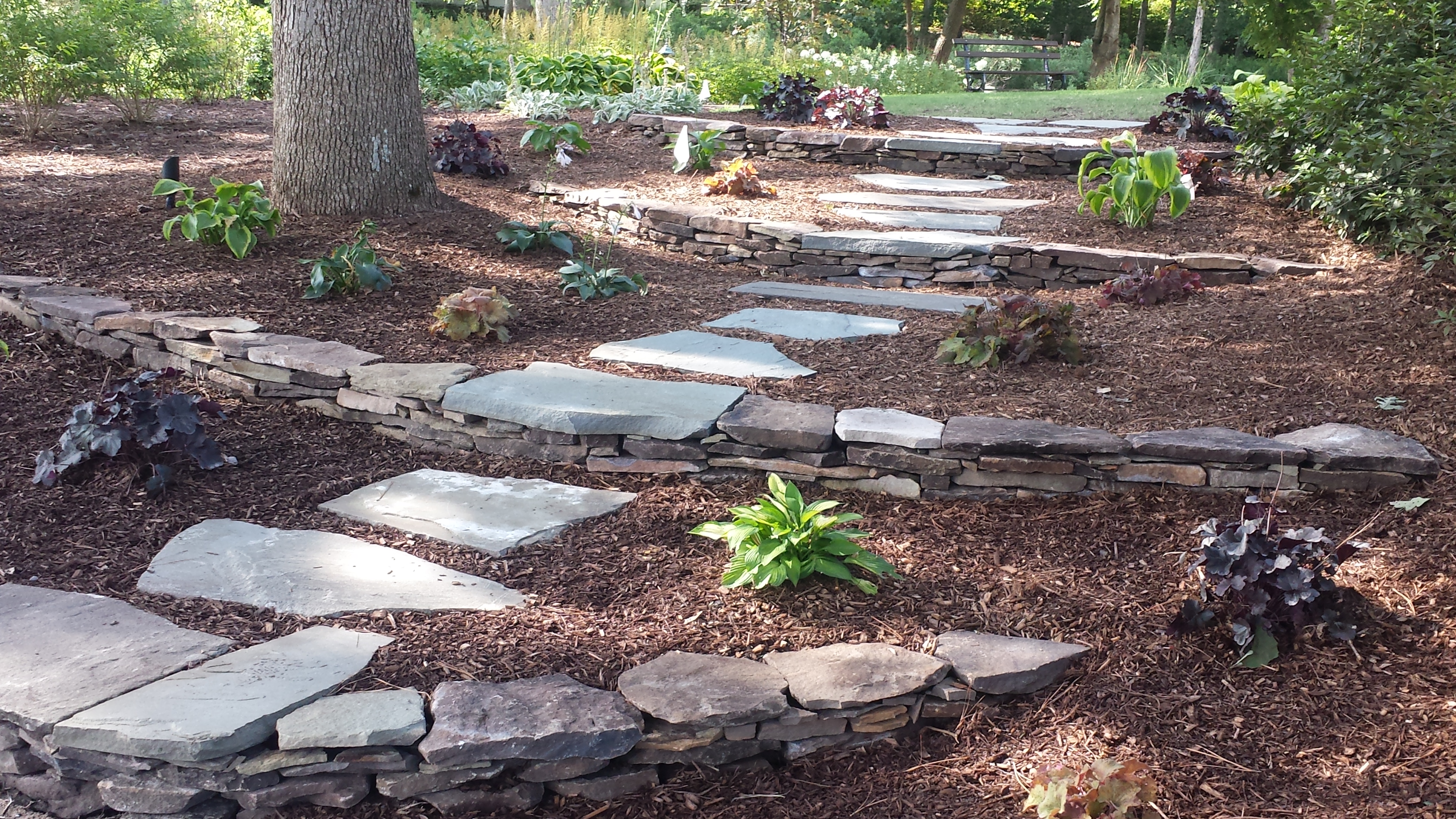Nothing adds warmth and beauty to your home, quite like natural stone. A dull entryway can be transformed, and a pathway made magical with the endless variety and choices available. You will never go wrong from a large patio to a small fire pit by choosing a real stone. Let’s take a look at the specific benefits of choosing stone for your next hardscape project.
Adds Natural Beauty & Curb Appeal
Individual pieces of stone are unique and beautiful with their blend of tones, colors, and textures. Manufactured product pieces are generally identical, lacking individual nuances. Natural stone will retain its look over time, becoming more beautiful with age, and the color will not fade dramatically.
Natural Stone is Durable & Versatile
Enduring in various forms for centuries, natural stone offers timeless beauty. Some stone, such as granite and limestone, will resist heat, moisture and hold up to heavy foot traffic. Delamination, cracking, crumbling, and frost heave isn’t a problem, making it an excellent and durable paving option. Stone can even be an excellent choice for pools, patios, and driveways, provided installation guidelines are followed for thickness and correct substrate for the intended weight loads.
Low Maintenance
Natural stone does require cleaning from time to time. Cleaning the stone removes surface dirt and algae, but you won’t find the need to seal, resurface, and fix cracks like manufactured products require. Also, the small joints used when installing means fewer weeds.
Natural Stone Adds Property Value
Using real stone will give you a much better return on your investment than a manufactured product will, and does not necessarily cost more when you consider the fact that less maintenance is required. Repairing, resealing, and recoloring can be costly and labor-intensive and isn’t necessary when using stone. Due to stone’s timeless look and longevity, the higher initial investment is paid for in value over time and never goes out of style.
Sustainable & Environmentally Friendly
Stone uses less energy, contributes less pollution, and leaves an overall smaller carbon footprint than other building materials. It can be recycled and repurposed into other projects or be used in aggregates by crushing it. Although natural stone still must be extracted, shaped, packaged, and transported, it does not require manufacturing.
Real stone is the most sustainable building material, as stone resources are vast, plentiful, and date back billions of years. Although stone’s regeneration is not as readily visible as trees’ regeneration, it is a continuous process with stone having an enduring life-cycle.
By choosing natural stone for your next hardscaping project, you will add lasting natural beauty to your home while increasing its value. Before you begin, contact your local certified landscaping designer to help you work out the best plan and material choice for your area.
Learn to take care of your stone in the winter.




